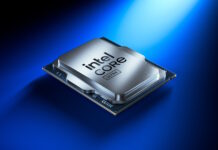When Intel launched its Core i7 platform it used an integrated memory controller for the first time in ages. Core i7 took things 50% further than most other integrated memory controller by sporting three DDR3 memory channels. Intel’s Core i7 processors sports some impressive performance and some extra bandwidth through an additional memory channel can’t hurt. But the fact remains that Core i7 all of a sudden requires three memory modules instead of two to get maximal performance, or does it?
InsideHW has published an article that looks closer at the memory support of the Core i7 platform and compares the performance of two and three memory modules.
The results are quite interesting since the everyday use, in everything from synthetic benchmarks to games and file compression see very small differences, if any at all. Even though the theoretical bandwidth of three memory channels is considerably higher, the actual performance gained from three modules over two is almost negligible. At most a few percentages.
There are applications and occasions where the triple channel memory controller gives a boost, but it becomes quite clear near the end of the article that the coming Core i5 will do just fine with its integrated dual channel memory controller.
:: Intel Core i7: Dual-Channel vs. Triple-Channel Memory Mode


















